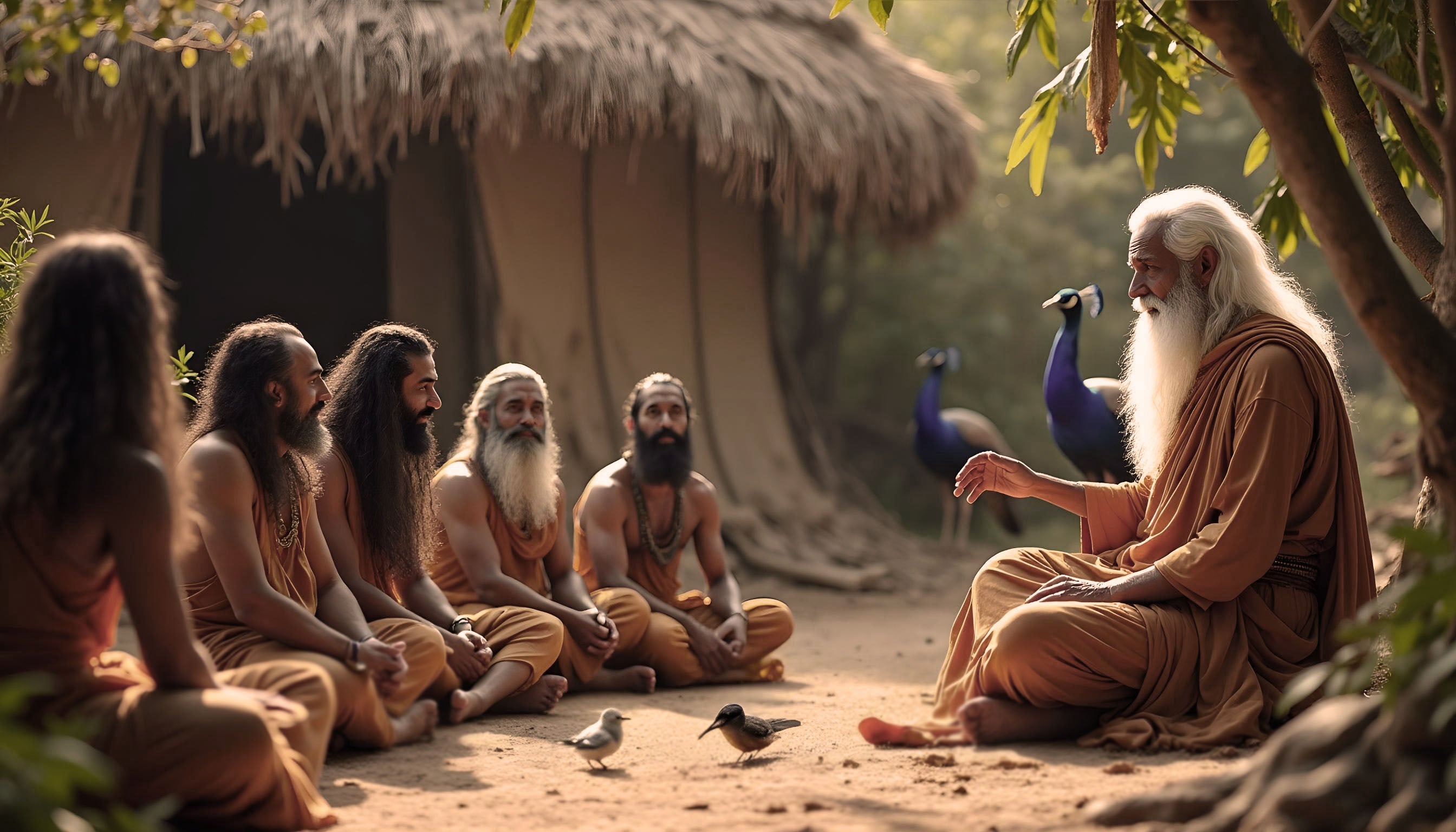Over thousands of years, the wisdom of India's esteemed sages and seers has nourished and refined Ayurveda, the age-old system of natural medicine. The foundation of modern Ayurvedic treatment is derived from the teachings of these enlightened sages, who devoted their lives to comprehending the human body, mind, and spirit. This blog celebrates the continuing legacy of some of India's most influential sages and the holistic health system they helped develop, as we examine their tremendous contributions to Ayurveda.
1. Sage Charaka
Contribution: Sage Charaka is renowned for his comprehensive work, the Charaka Samhita, one of the foundational texts of Ayurveda. This ancient treatise focuses on internal medicine (Kayachikitsa) and provides detailed descriptions of various diseases, their diagnosis, and treatment protocols.
Legacy: Charaka's emphasis on prevention, lifestyle management, and a holistic approach to health continues to guide Ayurvedic practitioners today. His work underlines the importance of diet, environment, and mental well-being in maintaining health.
2. The Scholar Sushruta
Contribution: The Sushruta Samhita was assembled by the sage Sushruta, who is frequently referred to be the "father of surgery." This groundbreaking work illustrates the sophisticated medical knowledge of ancient India by providing specifics on surgical instruments, techniques, and procedures.
Legacy: Sushruta's pioneering work in surgery and his comprehensive knowledge of the human body have left a long-lasting impression on modern medicine and Ayurveda. His writings contain in-depth explanations of anatomy, surgical techniques, and postoperative care.
3. Vagbhata Sage
Contribution: The Ashtanga Hridayam and Ashtanga Sangraha were written by Sage Vagbhata, who combined the wisdom of prior Ayurvedic literature into a more comprehensible style. His writings encompass internal medicine, surgery, and rejuvenation therapy among the eight branches of Ayurveda.
Legacy: Vagbhata's writings are required reading for Ayurvedic practitioners due to his pragmatic application of Ayurvedic principles and his thorough discussion of health and wellness. Especially noteworthy are his emphasis on a balanced lifestyle and the use of seasonal rituals.
4. Patanjali, The Sage
Contribution: Sage Patanjali is mainly recognized for his yoga research, however his Yoga Sutras also touch on Ayurvedic concepts. His teachings on the relationship between the mind and body as well as the value of harmony and balance are highly compatible with Ayurvedic medicine.
Legacy: The combination of Ayurvedic and yoga medicine, as well as Patanjali's understanding of mental health and holistic approach to well-being, are still influenced by his teachings. His focus on inner calm and mental clarity harmonizes with Ayurvedic principles of physical wellness.
5. Kashyapa Sage
Contribution: The Kashyapa Samhita, an old book on obstetrics, gynecology, and pediatrics, is attributed to Sage Kashyapa. His research offers insightful information on mother health, child care, and Ayurvedic treatment of women's health problems.
Legacy: By highlighting the significance of tailored treatment for various phases of life, Kashyapa's contributions have enhanced the field of Ayurveda. His recommendations for pediatric and newborn care are still in use today.
6. Agastya Sage
Contribution: In Siddha and Ayurvedic medicine, sage Agastya is highly esteemed. He is recognized for his many contributions to the fields of herbal medicine, detoxification, and the creation of rejuvenation treatments.
Legacy: Ayurvedic practitioners are still motivated by Agastya's herbal usage lessons and his all-encompassing perspective on spirituality and health. He is especially well-known for his compositions that promote digestive and respiratory health.
7. Dhanvantari Sage
Contribution: Sage Dhanvantari is frequently praised as the divine healer and the god of Ayurveda, and his teachings serve as the cornerstone of Ayurvedic treatment. He is renowned for his expertise in surgery, herbs, and general health.
Legacy: By continuing to practice and study Ayurveda, we commemorate Dhanvantari's divine insight and his role as the founder of Ayurvedic knowledge. His teachings place a strong emphasis on combining dietary habits with medicinal plants for overall wellness.
Including Ayurvedic Knowledge in Contemporary Life
These sages' teachings are not limited to old manuscripts; rather, they are living customs that still influence and direct contemporary Ayurvedic medicine. Their all-encompassing approach to health, which places a strong emphasis on prevention, balance, and natural cures, is a perfect fit with the modern demands of healthcare that is both individualized and sustainable.
Customized Medical Care
Ayurvedic philosophy is known for its emphasis on customized treatment regimens based on each person's distinct constitution (Prakriti).
Health Promotion
Maintaining balance and preventing sickness is made possible by the sages' emphasis on preventative healthcare through nutrition, lifestyle, and regular (Dinacharya) practices.
Natural Solutions
Several health problems can still be effectively treated with the use of herbs, oils, and natural medicines based on the wisdom of ancient seers.
The Mind-Body Link
Overall well-being is improved by integrating mental and physical health through techniques like yoga and meditation, as advocated by sages like Patanjali.
In summary
India's sages and seers have contributed much to Ayurveda, leaving a lasting impression on the world. Their ageless knowledge provides insightful guidance on attaining overall wellness and health. By honoring the legacy of these great thinkers, we can develop a balanced and healthy life by accepting their teachings.
Urge to Take Action
Learn more about the age-old wisdom of Ayurveda and how it can improve your overall health. Check out the selection of Ayurvedic goods on the Asli Aushadham website that are influenced by these age-old teachings. Comment below with your opinions on Ayurvedic sages and seers, and sign up for our newsletter to receive more thought-provoking articles and updates.





